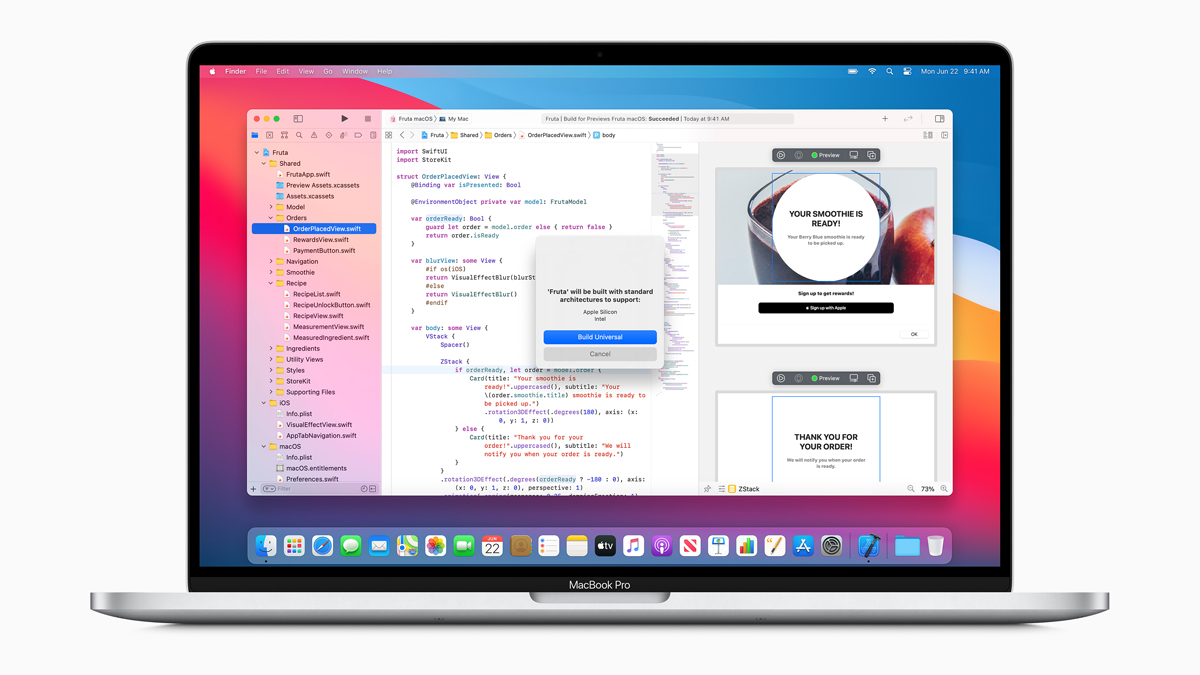Apple to ditch Intel processors in the Mac in favour of new Apple silicon power
Logic Pro X has already been updated, but what does this mean for your DAW and plugins?

Want all the hottest music and gear news, reviews, deals, features and more, direct to your inbox? Sign up here.
You are now subscribed
Your newsletter sign-up was successful
Apple has confirmed that it’s transitioning from Intel processors to new ARM-based Apple Silicon power in its Mac line-up.
The announcement was made during Apple’s WWDC livestream, which also saw the launches of new versions of the company’s mobile operating systems - iOS 14, iPadOS 14 - and macOS Big Sur, the latest iteration of Apple’s desktop operating system.
It appears that the Apple silicon processors have plenty in common with their mobile counterparts; indeed, footage was shown of a development Mac with a version of the iPad Pro’s A12Z Bionic chip inside. Apple says that it’s making the switch because it believes that the new chips will deliver better performance with lower power usage.
We’re told that all of Apple’s apps are already compatible with Apple silicon - including Logic Pro X - and that converting Intel ones to Universal ones that run on both platforms is a “smooth and seamless” process (we’ll have to see about that, though). Developers will be able to access the Universal App Quick Start Program from this week.
There’s also a new version of Rosetta - the app that was originally introduced when Apple switched from PowerPC to Intel processors - so that non-Universal apps will run on Apple silicon Macs.
What’s more, Apple says that Apple silicon macs will be able to run iOS and iPadOS apps natively, with no porting required. So, you’ll be able to use your favourite mobile music-making apps on your desktop. We suspect that we’ll start to see many more cross-platform music-making apps - ie, ones that run on Mac, iPhone and iPad - too.
The news also adds credence to the rumour that Logic Pro X is on the way to the iPad Pro.
Want all the hottest music and gear news, reviews, deals, features and more, direct to your inbox? Sign up here.
Apple says that it hopes to have the first Apple silicon Macs in production by the end of this year, and that the transition is expected to take two years. However, it’s also confirmed that there are still more Intel Macs in the pipeline, and that Intel hardware will be supported for many years to come.



I’m the Deputy Editor of MusicRadar, having worked on the site since its launch in 2007. I previously spent eight years working on our sister magazine, Computer Music. I’ve been playing the piano, gigging in bands and failing to finish tracks at home for more than 30 years, 24 of which I’ve also spent writing about music and the ever-changing technology used to make it.